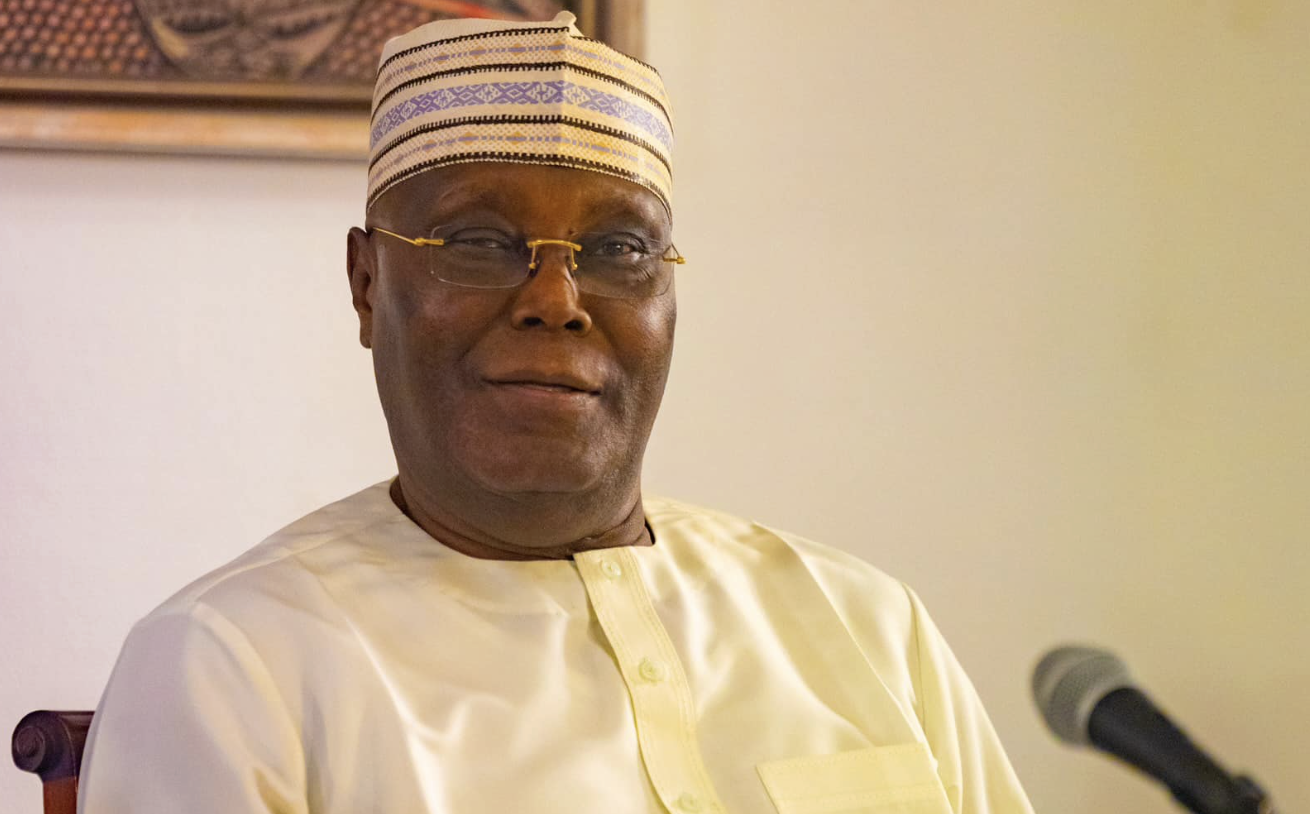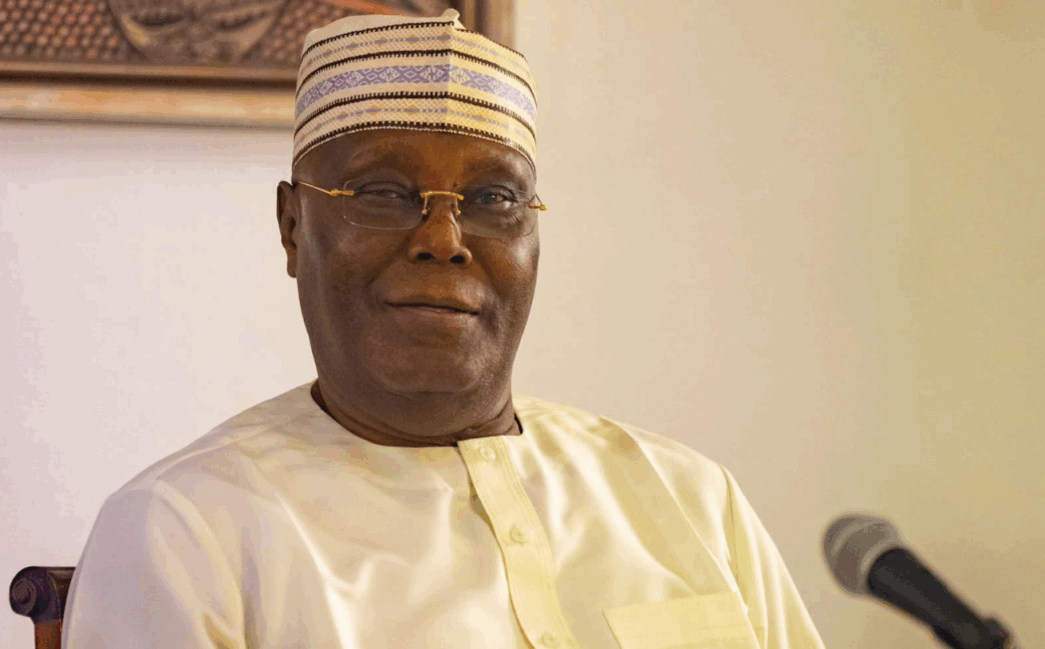BY DANIEL OKEREKE
In Jada, the serene hometown of Nigeria’s former Vice President Atiku Abubakar, the atmosphere was festive. The occasion was a birthday lecture organized by the Atiku Abubakar Foundation, a platform of family and friends dedicated to honoring the legacies of the Waziri Adamawa. Scholarship awards were announced for indigent school children in Jada, Toungo, and neighboring towns, an annual gesture by the Foundation in continuation of the Atiku legacy. Yet what unfolded was more than a celebration of age; it was a meditation on the Atiku persona. Dele Momodu, publisher of Ovation International and one of Nigeria’s most gifted orators, delivered a tribute that sought to decode the “Atiku Abubakar myth.” You must listen to Dele Momodu at least once before you die; he is a motivational powerhouse.
Dele Momodu’s oratory conveyed the cadence of philosophical truism. Without explicitly titling his speech Atiku: The Path of Uncommon Equanimity, he painted a resounding portrait of a man he rightfully described as “The Father of the Nation.” Atiku, he argued, embodies patience, humility, and a progressive spirit—qualities that have allowed him to remain undaunted by Nigeria’s mountain of crises.
The United States Peace Corps once described Atiku in superlatives: No private businessman in Africa has worked harder for democracy or contributed more to the progress of higher education than Atiku Abubakar. Momodu’s tribute echoed this sentiment, situating Atiku not merely as a politician but as a statesman whose influence transcends office.
Dele Momodu, the celebrated journalist, is an orator from another universe. He captivates his audience with his ebullient, relentless, and cerebral style, consistently raising expectations and never letting them down. He traced memories back to the Jos SDP convention of 1993, perhaps Nigeria’s most dramatic political theater. Three gladiators contested for the presidential ticket. Atiku, backed by the formidable machinery of General Shehu Musa Yar’Adua, stood a strong chance of victory. Yet he stepped down for Chief M.K.O. Abiola, sacrificing personal ambition for party unity and pan-Nigerian solidarity.
Advertisement
That sacrifice was not rewarded. Abiola bypassed Atiku and chose Babagana Kingibe, the other contestant, as his running mate. Still, Atiku remained loyal, campaigning vigorously and investing personal resources in the party’s success. When Abiola’s victory was annulled and Nigeria plunged into authoritarian rule, Atiku resisted General Abacha’s overtures, refusing cabinet positions and standing firm against dictatorship. Atiku stood firm at that critical juncture, when honor and integrity mattered to save the country. Not everyone did.
Dele Momodu left unspoken the tormenting question: had Abiola chosen Atiku as his running mate, might the June 12 struggle have taken a different course? He avoided the path of alternative history, perhaps saving it for another audience.
Where others might have turned bitterness into attrition, Atiku chooses faith and patience. Momodu described him as a man of destiny, one who absorbs disappointments without rancor. His strength lies in restraint—a refusal to retaliate when maligned, a discipline rooted in faith in Allah, and a conviction that history bends toward justice.
Advertisement
This patience is not passivity. It is strategic. It has allowed Atiku to survive betrayals, insults, and political exclusion while steadily building networks across Nigeria’s diverse political, social, and economic landscapes.
Dele Momodu emphasized Atiku’s cosmopolitanism: detribalized, progressive, and deeply invested in philanthropy. He highlighted Atiku’s contributions to education, democracy, and the rule of law. When wronged, Atiku turns to the courts, enriching Nigeria’s jurisprudence and strengthening democratic institutions. Atiku’s brand of politics has no room for thuggery and violence.
He is, in Momodu’s words, “the defender of the common man”—a man of intellect and ideas, whose philanthropy and investments in education have left their mark forever. Atiku has faced criticism, yet he has never responded with retaliation.
The loudest applause came when Dele Momodu described Atiku as “the most effective and influential vice president in Nigeria’s history.” Only people with scant knowledge of how power works would dispute that. He recalled the Obasanjo economic team, a constellation of global talents assembled under Atiku’s leadership. It was not a cabal but a meritocratic team whose reforms reshaped Nigeria’s economy and governance. Under Obasanjo and Atiku, Nigeria boldly shrugged off decades of underperformance and emerged as Africa’s number one economy. It has been a slow and agonizing regression since they left office. Many in the audience were left ruminating on where the Nigerian economy would be in 2025 if Atiku had succeeded Obasanjo in 2007.
Advertisement
Eighteen years out of power, Atiku remains, in Momodu’s words, “the only man they fear in Aso Rock.” His networks are vast, his influence enduring, and his relevance undiminished. In Jada’s Atiku Abubakar Family Auditorium, political gladiators from across the Northeast gathered—some allies, some former rivals, even enemies—united in admiration for a man whose resilience has become legend.
Momodu’s portrait was of a leader who embodies diversity, destiny, and determination. He is a man who never surrenders. He is a man whose strategic patience and malice towards none have not only made him a political colossus, but a legendary figure.
In the end, Dele Momodu’s discourse was less about birthday celebration than about legacy. It was a reminder that Atiku Abubakar’s story is not merely political but philosophical: the story of a man who has turned sacrifice into strength, patience into power, and resilience into relevance.
Okereke is Registrar and Vice President, Administration at AUN
Advertisement
Views expressed by contributors are strictly personal and not of TheCable.

